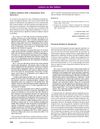 1 citations,
July 2023 in “Frontiers in Immunology”
1 citations,
July 2023 in “Frontiers in Immunology” Oxidative stress and immune dysfunction are linked to both Hashimoto's thyroiditis and polycystic ovary syndrome, with diet and specific treatments important for managing these conditions.
 4 citations,
August 2021 in “Biomedicine & Pharmacotherapy”
4 citations,
August 2021 in “Biomedicine & Pharmacotherapy” 5-alpha reductase inhibitors, like finasteride and dutasteride, may cause depression, but more research is needed to understand why.
 January 2014 in “Journal of Investigative Dermatology”
January 2014 in “Journal of Investigative Dermatology” Proteins like aPKC and PDGF-AA, substances like adenosine and ATP, and adipose-derived stem cells all play important roles in hair growth and health, and could potentially be used to treat hair loss and skin conditions.
January 2023 in “Odisha Journal of Psychiatry” Thorough patient interviews are crucial to identify self-inflicted hair loss.
 October 2023 in “Deleted Journal”
October 2023 in “Deleted Journal” No single method is best for quitting smoking; it depends on individual preferences and health.
 20 citations,
August 2022 in “Archives of Medical Science”
20 citations,
August 2022 in “Archives of Medical Science” The Polish medical societies have redefined metabolic syndrome and recommend lifestyle changes, certain medications, and possibly bariatric surgery for treatment. They also discuss managing related health conditions.
 16 citations,
March 2006 in “The American journal of psychiatry”
16 citations,
March 2006 in “The American journal of psychiatry” Lowering the dose of ziprasidone can cause sudden restlessness and urge to move in patients.

Pumpkin roots contain compounds like Alpha-spinasterol, squalene, and palmitic acid, which may have health benefits like reducing depression, treating certain cancers, and having antibacterial properties.
 21 citations,
January 2020 in “General and Comparative Endocrinology”
21 citations,
January 2020 in “General and Comparative Endocrinology” Lack or blocking of SRD5a, a key component in hormone creation, can lead to conditions like pseudohermaphrodism and affect hair growth, bone mass, muscle strength, and reproductive health. More research is needed on its regulation from fertilization to adulthood.
 March 2021 in “Actas Dermo-Sifiliográficas”
March 2021 in “Actas Dermo-Sifiliográficas” The microbiome may be linked to hair loss and could be a target for new treatments.
 9 citations,
April 2018 in “Journal of trace elements in medicine and biology”
9 citations,
April 2018 in “Journal of trace elements in medicine and biology” Hair analysis can show nutritional status and environmental exposure, with phosphorus being very stable in hair and differences found based on gender and conditions like depression and autism.

Hair analysis can help identify specific minerals and amino acids linked to various diseases.
 101 citations,
May 2014 in “PLOS ONE”
101 citations,
May 2014 in “PLOS ONE” Women with PCOS have a higher chance of experiencing depression, anxiety, and sleep disorders.
 November 2020 in “Elsevier eBooks”
November 2020 in “Elsevier eBooks” Antiandrogens and androgen inhibitors like spironolactone, finasteride, and dutasteride can treat hair loss and skin conditions, but they have risks and side effects, including potential harm to pregnant women and risks of cancer and heart issues. Herbal remedies also have antiandrogenic effects but lack safety validation.
 28 citations,
September 2013 in “Expert Opinion on Therapeutic Patents”
28 citations,
September 2013 in “Expert Opinion on Therapeutic Patents” New resveratrol-related compounds show promise for treating various health issues but need more research for clinical use.
 20 citations,
November 2012 in “Journal der Deutschen Dermatologischen Gesellschaft”
20 citations,
November 2012 in “Journal der Deutschen Dermatologischen Gesellschaft” Hair diseases can have psychological effects and should be treated with a combination of psychosomatic care, therapy, and medication.
 30 citations,
March 2015 in “Clinical Endocrinology”
30 citations,
March 2015 in “Clinical Endocrinology” Young women with high male hormone levels or PCOS often feel more psychological distress and have a lower quality of life.
 47 citations,
January 2003 in “American Journal of Clinical Dermatology”
47 citations,
January 2003 in “American Journal of Clinical Dermatology” Mood stabilizers can cause serious skin reactions; careful monitoring and immediate treatment are crucial.
 52 citations,
March 2016 in “JAMA dermatology”
52 citations,
March 2016 in “JAMA dermatology” Patients with PCOS rate their hirsutism higher than clinicians, and these self-ratings are more closely related to their quality of life and risk of depression.
 6 citations,
May 2017 in “InTech eBooks”
6 citations,
May 2017 in “InTech eBooks” Hair loss can cause serious mental health problems and treating it requires a team of experts.
 116 citations,
December 2017 in “International Journal of Women's Dermatology”
116 citations,
December 2017 in “International Journal of Women's Dermatology” Adult female acne treatment should be personalized, considering individual preferences and pregnancy, using various topical and oral medications while managing side effects and resistance.
 4 citations,
March 2013 in “Neuropsychiatric Disease and Treatment”
4 citations,
March 2013 in “Neuropsychiatric Disease and Treatment” A woman with anorexia and Cushing's syndrome improved after tumor removal, highlighting the need to consider hormonal issues in psychiatric conditions.
 30 citations,
March 2001 in “Environmental Health Perspectives”
30 citations,
March 2001 in “Environmental Health Perspectives” Small changes in hormones can significantly impact health, showing the importance of sensitive testing for chemicals that disrupt hormones.
158 citations,
March 2011 in “Journal of the American Academy of Dermatology” Patients with cutaneous lupus erythematosus have a severely impaired quality of life, especially emotionally.
 December 2023 in “Journal of materials chemistry. B”
December 2023 in “Journal of materials chemistry. B” A new nanoemulsion increases oxygen for hair cells, leading to better hair growth.
 167 citations,
January 2006 in “Gynecological Endocrinology”
167 citations,
January 2006 in “Gynecological Endocrinology” Women with PCOS have lower quality of life, especially in mental health and energy, and managing weight can help improve it.
 November 2023 in “Australasian journal of dermatology”
November 2023 in “Australasian journal of dermatology” Dermatologists are essential in helping transgender and gender diverse patients with skin and hair issues related to gender affirmation and hormone therapy.

Accurate diagnosis and timely, tailored treatments improve outcomes in obstetrics and gynecology.
 5 citations,
December 2022 in “Toxins”
5 citations,
December 2022 in “Toxins” Neurotoxins can affect neurotransmitter release and have potential in treating muscle, pain, and cancer conditions, but more research is needed on how they work.
 1 citations,
October 2022 in “Adolescent Health, Medicine and Therapeutics”
1 citations,
October 2022 in “Adolescent Health, Medicine and Therapeutics” Gender-affirming therapy can cause skin issues like acne and hair loss in transgender adolescents, and more research is needed on its dermatological effects.



























